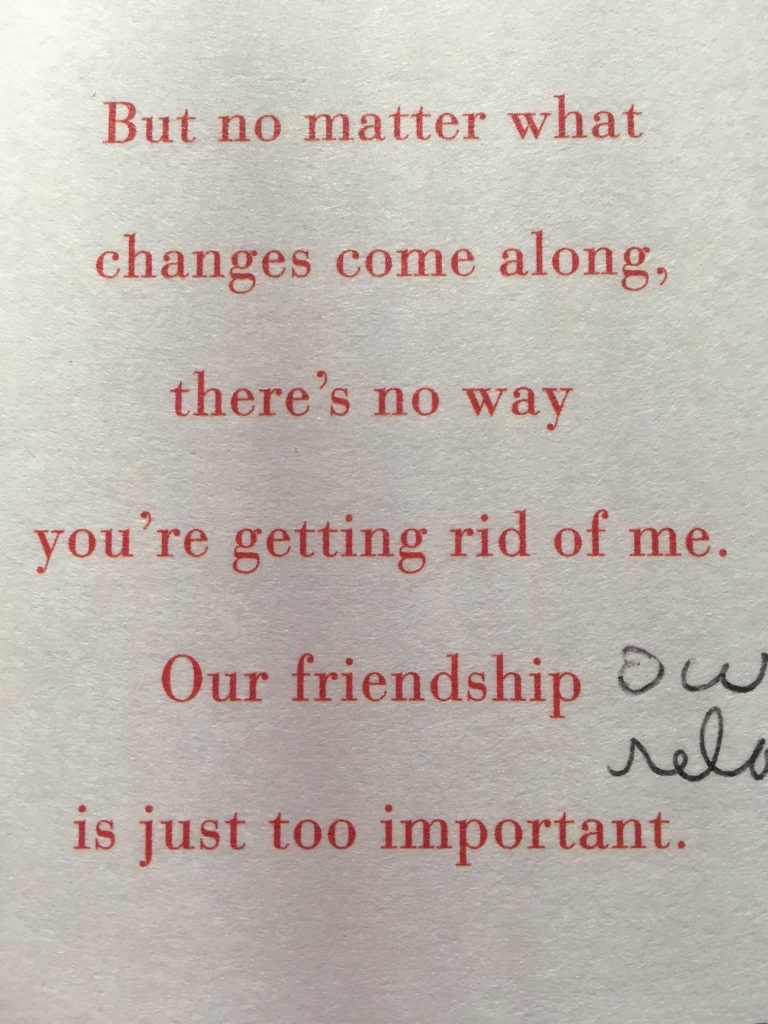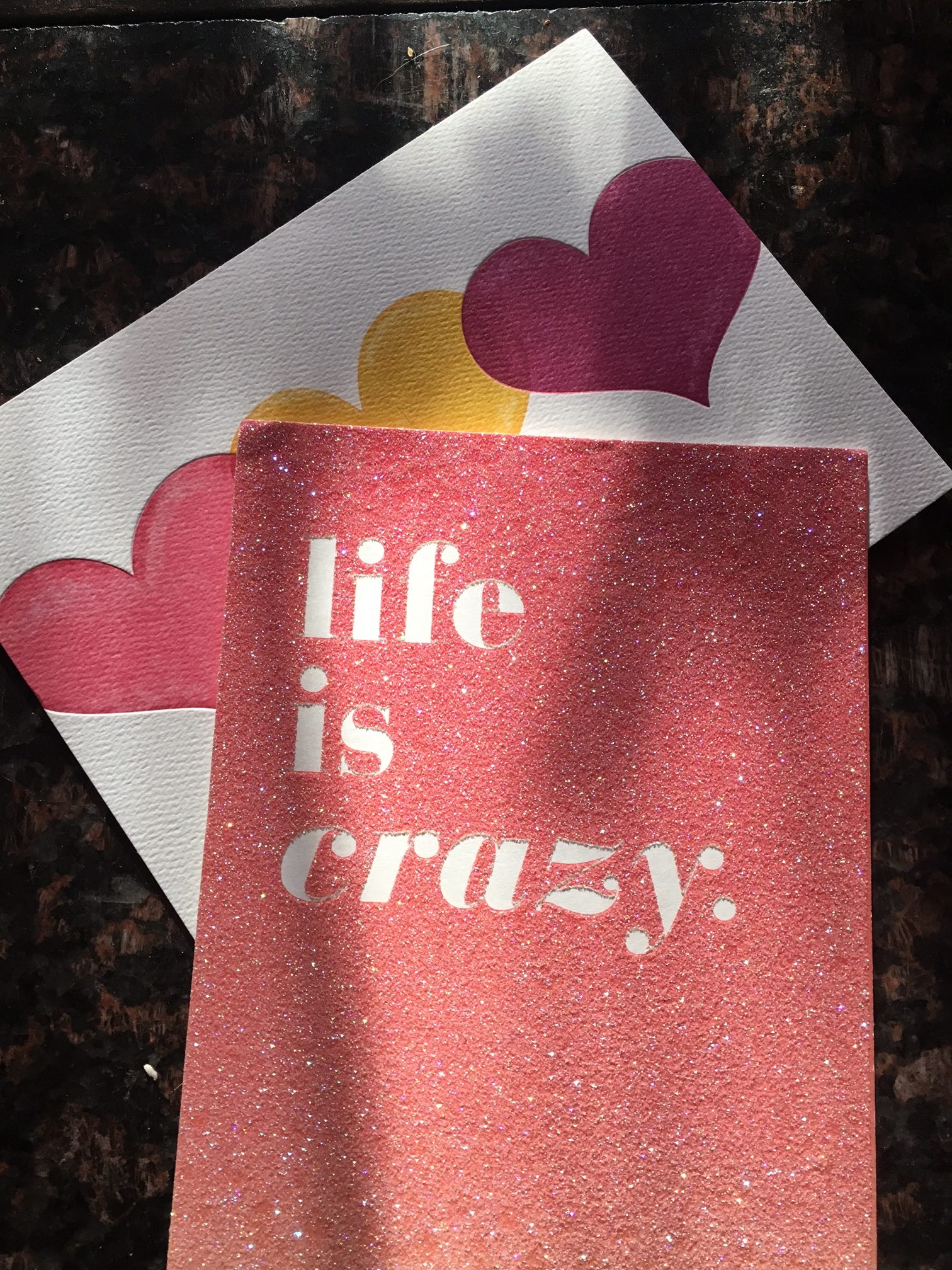A big part of foster classes is about attachment. Children form healthy attachment through having needs and having the responsible adults in their life meet those needs; the most basic for new babies being: touch, changing diapers, food when hungry, etc. Healthy children who have their needs, both physical and emotional, met in a healthy manner grow are then able to begin exploring the world from a safe and secure base. In a healthy parent-child relationship, the child’s needs are fulfilled by the parent – not the other way around.
Every parent fucks this up sometimes – good news, you do not need to be the perfect parent and meet every need (not want) perfectly to give your child the ability to grow and be healthy! But as a matter of practical common sense – the more chaos, need, poverty, depression, and despair in a household, the less those needs will likely be met. Add in addiction, neglect, and/or abuse and you have children without the ability to have healthy attachment or boundaries – which affects us in every way moving forward (jobs, education, relationships, parenting, mental health).
Every child in foster care has a huge attachment hole – because regardless of anything else that is happening (and obviously something else is happening or they would not be in foster care), those children have been torn away from their primary care-giver; no, they are NOT happy to be out of that home. We are taught, and then I of course obsess and study, about negative signs of attachment disorders and what they might mean and how to cope with them. But foster class then reminded us to also pay extra attention to a child that is showing positive signs – the child that IS happy to be in your home, that doesn’t cry when they are taken away and just kind of goes with it and adapts and seems fine – that child is showing danger signs that should be addressed if they are going to be able to form true health attachments in the future.
Luckily, I have an amazing therapist and I already KNOW all about my attachment issues, or this would have been a rude awakening. I was one of the only kids who didn’t cry on the first day of kindergarten. I started going to camp alone when I was little.. 6 or 7? I never cried for home. Generally, I don’t miss people when they are gone. And I never suffer from culture shock: Yep, in this country you can’t drink water from the tap, or speak the language, or know where you are, or have electricity, or flushing toilets. Hey, in this one you can. Cool.
When I was a kid, my mom read me the book The Runaway Bunny. It’s a story about a little bunny that is mad at his mom and he plans to run away. The entire story is about how whatever he does and wherever he goes, mama-bunny will come after and find him. I THINK it is supposed to be reassuring to small children that even if they are mad and try to get away their parents will not abandon them. Someone with a secure attachment experience will have to tell me if I’m right. Because to me, it always read as a leash and a limitation. You will never be able to get away.
“Away” can have a lot of meanings. Here, I just mean boundaries.My bio-mom sent me two cards in the mail yesterday.
. 
It is one year to the day when she wrote me chastising me about my decision to break off contact with her again; and four years to the day that I saw her for the first time after nine years of separation in my attempt to try to reform a health bond with healthy boundaries.
She writes me emails or cards periodically; every time it is stressful, sad, comforting, guilt-inducing, reinforcing of my decisions, interesting; in short, it is fine. I imagine it is a much more mature, healthier, adult, version of what children in foster care feel during their parenting time with their biological parents – or more accurately, the time leading up to that time. And then I read the inside and it’s the adult version of The Runaway Bunny:

What a wonderful sentiment from a friend!
And what a wholly inappropriate statement from my estranged mother – a specific reminder that she will refuse to accept the boundaries other people place!
I am guessing that it is INTENDED to be reassuring that she is not mad and/or forgives me and/or won’t abandon me – but that is not the concern in our relationship. Our problems are in the listening, hearing, and respecting boundaries areas. It’s a huge and meaningful reminder of how much pain parents can cause without intending anything except showing love. And an even better example for teaching my white friends about microaggressions and a general refutation of “intent” as a defense. Intention is not irrelevant, but it is at best of secondary importance. Communication is at least 50% about what the listener perceives and understands, not about what you intend.
As we keep moving towards parenting, I think of the abominable examples our own parents set and I worry, incessantly, how can we ever be more than what we know and give these children of trauma a better emotional path than our own? Isn’t the parenting dream? That our children have better lives than ours? Not in material possessions…seriously, whatever. But that we are able, somehow, through education and mindfulness, to stop the generational trauma.


